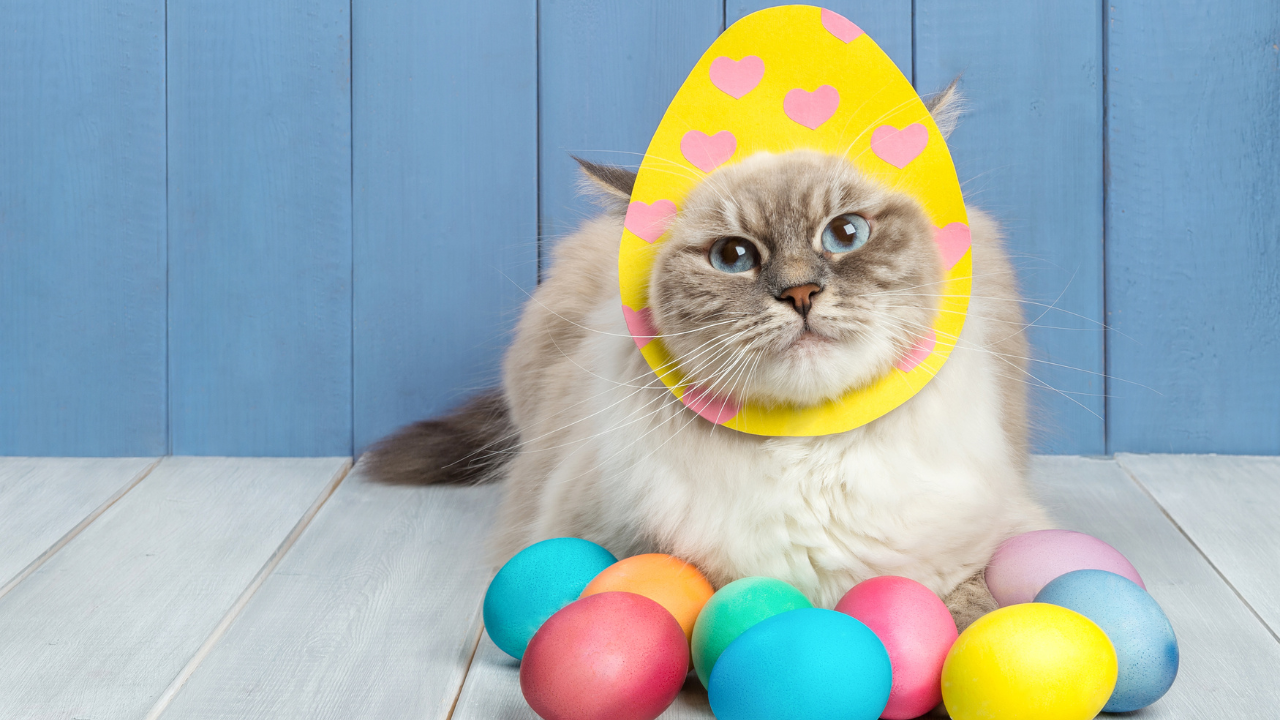
Key Highlights
- Eggs are safe for cats to eat as long as they are cooked.
- Cats should not eat raw eggs, as a chemical in the white called avidin binds biotin and will cause a deficiency.
- Cats are also susceptible to bird flu and can get sick from eating raw chicken or uncooked eggs.
- Eggs are a complete protein containing all essential amino acids, which is appropriate for cats that need a diet of mostly animal protein.
Can Cats Eat Eggs? A Holistic Veterinarian's Perspective
As a holistic veterinarian focused on species-appropriate, natural nutrition, I’m often asked whether certain whole foods, like eggs, can be safely shared with our feline companions. Eggs are a nutrient-dense source of animal protein and a great source of essential vitamins and amino acids. Whether mixing a small amount into a homemade recipe or offering a bite of scrambled or hard-boiled egg as a treat, this simple food can boost essential vitamins and amino acids, without being problematic for your cat’s health or digestive system.
The Nutritional Powerhouse of Eggs
Eggs, including egg yolks, are often referred to as nature's perfect protein, and for good reason. They contain all nine essential amino acids in adequate amounts, making them a complete protein source of beneficial nutrients added to your cat’s food and diet. A cat's diet should predominantly consist of animal products and protein, as they are obligate carnivores, ensuring a healthy cat’s diet and supporting your cat's overall nutrition. That eggshell contains everything needed to make a little chicken!
- Vitamins: Eggs are a good source of Vitamin A, D, and B vitamins.
- Choline: Choline helps keep a cat's nervous system healthy by supporting the production of neurotransmitters, which are essential for brain function and communication between nerve cells.
- Minerals: Eggs provide essential trace minerals such as selenium and iodine.
- Amino Acids: Eggs are a rich source of essential amino acids.
- Antioxidants: The yolk contains lutein and zeaxanthin, antioxidants important for eye health.
- Low in Carbohydrates: As obligate carnivores, cats have no essential need for carbohydrates. Eggs are naturally carb-free, making them an ideal protein source for felines.
Why Atherosclerosis is Rare in Dogs and Cats
Atherosclerosis is uncommon in dogs and cats. They are unlikely to get atherosclerosis due to too much fat in their diet, like humans. Why is this?
- Low Incidence: Usually not seen unless they have a rare underlying metabolic disease.
- High Threshold: Atherosclerosis rarely develops because dogs and cats have higher HDL levels in relation to LDL levels. The opposite is true in humans, who are more likely to develop it.
How to Incorporate Eggs into Your Cat's Diet
When introducing eggs to your cat's diet, start with small amounts in case of allergies or food intolerances. Here are some simple ways to prepare eggs for your feline friend.
- Scrambled: Cook without any added fats or seasonings.
- Boiled: Hard-boiled eggs are easy to cut, so give them a small piece.
- Add some to a balanced recipe!
Try a Holistic Recipe With Added Egg Today!
Ready to boost your cat's nutrition with the power of eggs? Why not try a holistic, homemade cat food recipe? Here's a simple, vet-approved recipe to get you started:
Turkey and Pumpkin With Egg
- 1 pound of 85% lean ground turkey
- 2 Tbsp coconut oil
- 1 cup of water
- 4 ounces of pumpkin
- 2 eggs
- 1/2 tsp of Holistic Vet Blend Omega-3 fish oil
- 2 Tbsp/15 grams Holistic Vet Blend Feline Premix or Feline Senior Premix
Instructions for Preparation:
- Brown 1 pound of ground turkey in 2 tablespoons of coconut oil.
- Mix in 1-2 cooked eggs towards the end of cooking the meat (approximately 6 minutes). Cook until done (2-3 minutes).
- Add 1 cup of water or bone broth to cool the recipe.
- Add Holistic Vet Blend premix and fish oil.
Mix with a stick blender or food processor to the desired consistency.
Portions and Frequency of Feeding
A good rule of thumb is to give your cat a small amount of cooked whole egg as an occasional treat alongside their normal food. A teaspoon or two of cooked egg usually works, depending on your cat's size and needs.
Remember that all treats, including eggs, should make up no more than 10% of your cat's daily calories. Watch your cat's weight and change how often and how much you give them to avoid weight gain, ensuring you stick to the recommended cat’s daily calories.
Conclusion
In summary, eggs have many nutritional benefits. They must be cooked when given to cats to eliminate viruses and harmful bacteria. This is the safest way to keep them safe, especially with the current health risk of avian flu in the United States. When in doubt, consult your vet about your cat's unique needs.
Frequently Asked Questions
Can cats eat raw eggs?
Raw or undercooked eggs pose a risk and should be avoided in cat diets. The H5N1 virus can survive in raw egg products.
How often can I feed my cat eggs?
A good rule of thumb is to give your cat a small amount of cooked egg once or twice a week as an occasional treat.
Are eggshells safe for cats?
Eggshells are an excellent source of calcium and can be used to balance a recipe.













